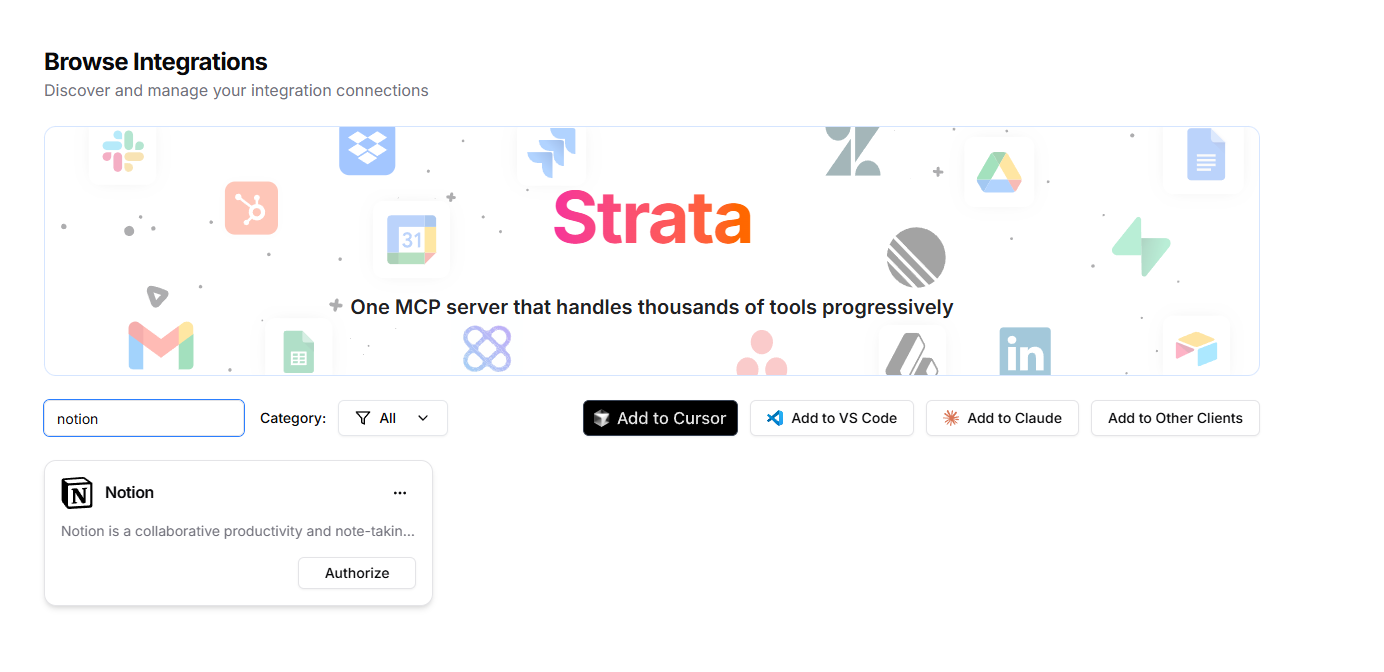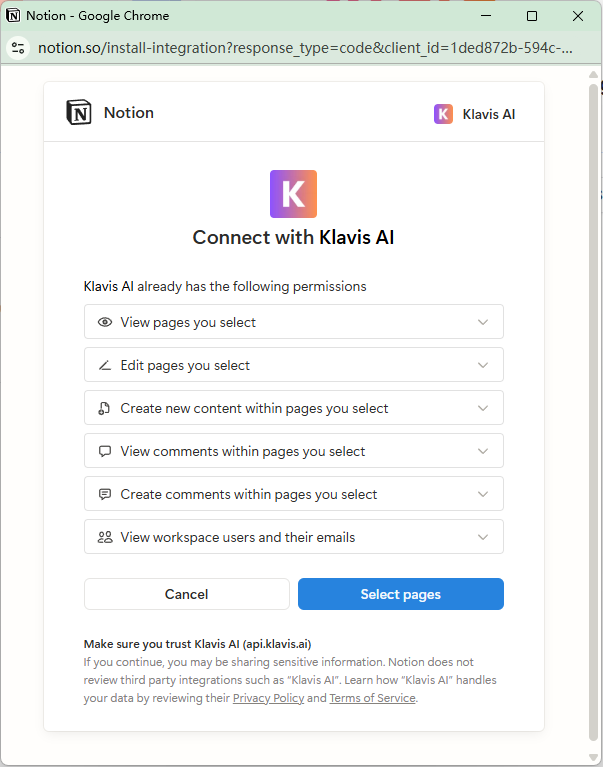TL;DR
Connecting a Large Language Model (LLM) to your Notion workspace via a Model Context Protocol (MCP) can automate tedious tasks, provide intelligent insights, and revolutionize your team's productivity. This article explores the "why" and "how," demonstrating practical, real-world use cases that move beyond simple automation to create an intelligent, self-organizing knowledge hub.
The Manual Morass of Knowledge Management: Why Your Notion Needs an Upgrade
Notion is a powerhouse for knowledge management, but its potential is often shackled by manual processes. Teams spend countless hours on repetitive tasks, and the cost is staggering. According to a McKinsey report, employees spend, on average, 1.8 hours every day—nearly a full day a week—just searching for and gathering information. This "work about work" is a major drain on productivity, preventing teams from focusing on high-impact initiatives.
These manual tasks not only consume valuable time but also introduce the risk of human error. A 2023 survey by Asana on workplace productivity confirmed that knowledge workers spend a majority of their day on these meta-tasks rather than skilled work. Integrating an LLM with your Notion workspace can drastically reduce this overhead.
| Task | Manual Approach | LLM-Powered Automation | Time Saved (per week) |
|---|---|---|---|
| Weekly Project Report | Manually gather data from different databases, synthesize it, and write a summary. | An LLM-powered agent automatically pulls data from project boards, generates a summary, and creates a new page with the report. | 2-3 hours |
| Meeting Notes | Manually transcribe and summarize meeting notes, then create action items. | An LLM can transcribe the meeting, generate a concise summary, and automatically create and assign tasks in your project management board. | 1-2 hours |
| Content Curation | Manually browse articles and save them to a "Reading List" database. | An LLM-powered agent can monitor specific keywords or RSS feeds and automatically save relevant articles to your Notion database, complete with summaries and tags. | 2-4 hours |
By automating these processes, you can free up your team to focus on strategic initiatives and creative problem-solving. In fact, 66% of small and mid-sized businesses report that automation allows them to compete more effectively with larger companies.
Practical Use Cases: Putting Your Notion on Autopilot
Let's move beyond theory and explore some detailed, practical applications of an LLM-powered Notion workspace.
1. The Proactive Project Manager
The Problem: Project managers spend hours manually chasing status updates, collating data from different Notion databases, and building reports. Information is static and quickly becomes outdated.
The Solution: An AI agent that can be queried in natural language. Imagine asking your assistant: "Give me a summary of Project 'Aquila's' progress this week. Highlight any blocked tasks, mention the engineers responsible, and draft a brief for the stakeholder meeting."
How it Works: The LLM, using the Notion MCP, would:
- Scan the
Projectsdatabase to identify the "Aquila" project page. - Query the
Tasksdatabase, filtering for all tasks linked to "Aquila". - Analyze the
Statusproperty of each task, flagging any marked as "Blocked." - Cross-reference the
Assigneeproperty with yourTeamdatabase to name the responsible engineers. - Synthesize this information into a concise summary, generate a new page in Notion with the report, and even send a notification to a relevant Slack channel.
Going Deeper: This can be extended to complex dependency management. You could ask, "If the 'API Integration' task for Project Aquila is delayed by three days, what other tasks and deadlines will be affected?" The agent could trace the relational links in your databases to map out the downstream impact, providing a level of foresight that is nearly impossible to achieve manually in real-time.
2. The Autonomous Research Engine
The Problem: Content and research teams struggle with the "blank page" problem. They spend significant time manually scouring the web for inspiration, curating articles, and identifying trends.
The Solution: An automated agent that acts as a 24/7 research assistant, building a dynamic content pipeline for you.
How it Works:
- Setup: Configure the agent to monitor specific RSS feeds (e.g., industry news sites, competitor blogs) and Google Alerts for keywords like "Generative Engine Optimization" or "Model Context Protocol."
- Execution: When a new article is detected, the agent triggers a workflow. It creates a new entry in your
Content Pipelinedatabase in Notion. - Enrichment: It doesn't just save a link. The LLM populates properties by generating a concise
Summary, extracting keyKeywords, and even suggesting aPotential Anglefor your team's next blog post.
Going Deeper: You can enhance this by adding sentiment analysis. The agent could not only save articles but also classify the market's sentiment around a particular topic as "Positive," "Negative," or "Neutral," helping you prioritize content that addresses current industry conversations.
3. The Intelligent Meeting Facilitator
The Problem: Meetings often suffer from a lack of preparation and poor follow-through. Action items get lost, and decisions are not properly documented.
The Solution: An AI agent that assists throughout the entire meeting lifecycle: before, during, and after.
- Pre-Meeting: An hour before a scheduled project sync, the agent automatically generates a "Briefing Document" page in Notion. It pulls in the original meeting agenda, links to relevant project pages, and, most importantly, lists all open action items from the previous meeting for review.
- During Meeting: Connected to a transcription service, the agent can listen for trigger phrases like "I'll take that on" or "The action item is..." to automatically draft tasks in your Notion
Tasksdatabase in real-time. - Post-Meeting: Within minutes of the meeting ending, the agent polishes the transcript, generates a concise summary with key decisions, and shares the page—which includes the list of newly created tasks and assignees—in a team Slack channel.
4. The "Always-On" HR and Team Knowledge Expert
The Problem: New hires and even veteran employees spend a lot of time asking repetitive questions ("What's the wifi password?", "Where can I find the Q3 marketing plan?"). This interrupts team members and slows down productivity.
The Solution: A conversational AI, integrated into Slack or Teams, that uses your Notion workspace as its brain.
How it Works: Your entire company wiki, HR policies, project documentation, and process guides live in Notion. When an employee asks the bot a question, the LLM:
- Performs a semantic search across your entire Notion workspace to find the most relevant pages.
- Reads and understands the content on those pages.
- Synthesizes the information into a direct, accurate answer.
- Provides the answer along with a link to the source page in Notion for further reading.
This creates a self-service knowledge base that provides instant answers, freeing up your team to focus on their actual jobs.
Connecting Your LLM to Notion with Klavis Strata MCP
So, how do you bridge the gap between your LLM and your Notion workspace? The Model Context Protocol (MCP) provides a standardized way for AI models to interact with external tools and data sources. Klavis Strata MCP, a unified MCP server, simplifies this process even further.
Instead of overwhelming an AI agent with hundreds of tools at once, Strata uses a progressive discovery approach:
- Intent Recognition: The AI identifies the user's high-level goal.
- Category Navigation: It guides the AI to the relevant tool categories.
- Action Selection: The AI drills down to specific actions within those categories.
- API Execution: It reveals API details only when needed and executes the task.
This approach has been shown to improve performance significantly, with a +13.4% higher pass@1 rate compared to the official Notion MCP server in the MCPMark benchmark.
 Strata MCP performs better in terms of success rate as well as token usage
Strata MCP performs better in terms of success rate as well as token usage
Here’s how you can get started with Klavis. First, find the notion MCP:

And authorized Klavis to access your notion through OAuth:

You already have a notion MCP available!
For more details and API integratoin, you can refer to the Klavis AI documentation.
FAQs
Q: Is it secure to connect an LLM to my Notion workspace?
A: Security is paramount. When using a reputable MCP provider like Klavis AI, you are protected by enterprise-grade security features like OAuth 2.0 support, multi-tenancy authentication, and user-based access controls to ensure that your data remains secure and private. For more on this, you can review security best practices from sources like the Cloud Security Alliance.
Q: Do I need to be a developer to set this up?
A: While some technical knowledge is helpful for custom solutions, the landscape is becoming increasingly accessible. Platforms like Klavis AI offer SDKs in Python and TypeScript to simplify integration. Furthermore, the rise of no-code platforms like Zapier, which now offer AI-powered features, allows non-developers to build powerful automations.
Q: What other tools can I connect to Notion with an MCP?
A: An MCP architecture opens up a universe of possibilities. You can connect your Notion workspace to a wide range of tools, including:
- Communication: Slack, Discord, Gmail
- Development: GitHub, GitLab, Jira
- Business Applications: Salesforce, HubSpot, Google Drive
